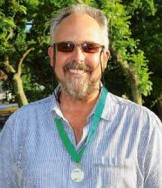
Ecoisland, a Community Interest Company hopes to offer the domestic renewable energy storage solution after first testing it on a single home, believe to be that of Ecoisland founder David Green. The island’s local government has not endorsed the campaign but the term ecoisland was coined by the ex-CEO of IOW Council, Joe Duckworth during his short tenure.
Ecoisland intends to offer residents an energy storage infrastructure that can “make the best use of the energy being produced,” says Mr Green.
Should the trial prove successful, Ecoisland intends to promote, finance and supply domestic renewable energy storage solutions for installation in potentially half of the 65,000 homes on the island. The parties expect that the trial will commence by the end of April 2013 and will run for approximately three months.
The 5kW fuel cell system from Dantherm Power will generate hydrogen directly from solar panels on the home. The hydrogen will be stored in cylinders and then put through a fuel cell when energy is needed (for example, to power the night-time energy requirements of the house). The cost of the technology is estimated at about £70,000 per house by www.off-grid.net
Eco-Island claim that the island”s smart grid infrastructure will be able to transmit the stored energy to each part of the island where and when it is needed. But the cost vs the number of users does not equate.
“Decentralised hydrogen storage in homes will therefore allow the island to maximise its renewable resources and will be essential for reaching the island”s ambitions of being energy-independent by 2020,” says Ecoisland.
If successful, this project will allow clean, renewable energy to be stored so it is used conveniently and safely, and on a local basis that minimises energy transmission losses. But it is to clear how the economics stack up.
David Green of Ecoisland commented: “The cost-effective storage of renewable energy on a local basis is the “holy grail” of the renewable energy industry and we hope that this project will allow us to move closer towards this goal for the Isle of Wight and for wider benefit of society.”
Source: London Stock Exchange
powkey Portable Power Station 350W, 260Wh/70,000mAh Backup Lithium Battery, 110V Pure Sine Wave Power Bank with 2 AC Outlets, Portable Generator for Outdoors Camping Travel Hunting Emergency
Now retrieving the rating.
$192.98 (as of April 24, 2024 13:58 GMT +01:00 - More infoProduct prices and availability are accurate as of the date/time indicated and are subject to change. Any price and availability information displayed on [relevant Amazon Site(s), as applicable] at the time of purchase will apply to the purchase of this product.)Amazon Visa
Now retrieving the rating.
$23.00 (as of April 24, 2024 13:58 GMT +01:00 - More infoProduct prices and availability are accurate as of the date/time indicated and are subject to change. Any price and availability information displayed on [relevant Amazon Site(s), as applicable] at the time of purchase will apply to the purchase of this product.)200W Portable Power Station, Powkey 120Wh/33,000mAh Power Bank with AC Outlet, 110V 6 Outputs Solar Generator External Battery Pack with LED Light for Home Use and Outdoor Camping
Now retrieving the rating.
31% OffAnker Power Bank Power Station 60,000mAh,Portable Outdoor Generator 87W with Smart Digital Display, Retractable Auto Lighting and SOS Mode, Home Backup(PowerCore Reserve 192Wh) for Travel, Camping
Now retrieving the rating.
$149.99 (as of April 24, 2024 13:58 GMT +01:00 - More infoProduct prices and availability are accurate as of the date/time indicated and are subject to change. Any price and availability information displayed on [relevant Amazon Site(s), as applicable] at the time of purchase will apply to the purchase of this product.)Foldable Solar Panel Charger 60W with 18V DC Output (11 Connectors) for 100W~350W Portable Power Stations Jackery/Rockpals/Flashfish/Enginstar, Portable Solar Generator for Outdoor Camping Van RV Trip
Now retrieving the rating.
$98.99 (as of April 24, 2024 13:58 GMT +01:00 - More infoProduct prices and availability are accurate as of the date/time indicated and are subject to change. Any price and availability information displayed on [relevant Amazon Site(s), as applicable] at the time of purchase will apply to the purchase of this product.)






2 Responses
ACTA are undisputed domestic hydrogen partners at DreamIsland . They adapt their technology faster than camelians can change colours. I never heard of E500 before the 5KW FC and chp for domestic use , cheap at half the price, whereas ITM had a 5kw system electrolysing at 15 bar for SMEs at the first open day.. I tend to think ACTA has to be on its last legs, as they will not have proved the technology or economics before they put their foot in it
Cruel if Killik fell for the Blinxing crock of gold a second time!
Rosy picture painted pre placing of 1 off orders for testing. E300 mentioned, 1M3/hr mentioned, and for DreamIsland E500 .. It does so smell to me!
Has anyone done the economics on this? Diverting PV electricity during the expensive daytime period into making hydrogen at the home level to power the home off-grid during the cheapest part of the day – night-time base load at £70,000 per house? Using the Green deal to pay for it with higher electricity prices? Payback? >100 years? This is currently uneconomic and only viable at the grid level where the plant can be effectively utilised for grid balancing, frequency modulation and harvesting surplus renewables – particularly wind.